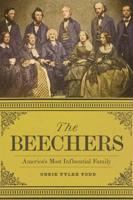Publisher's Synopsis
Charles Harold Mawson, known as "Charlie", was born in Bradford in 1898. The family settled in Whitley Bay, Northumberland, and as a young man he took up employment in a bank. Around that time, he began to keep a diary, and the entries are notable for the honesty with which he muses on his desire to be a totally committed follower of Jesus Christ. However, following the passing of the Military Service Act in early 1916, on October 25th of that year he was called up for military service in the 2nd Life Guards, and was assigned to the Household Battalion. Diary entries ceased, but letters home (always liable to be censored) began. From the extracts from his letters it is clear that the aspirations expressed in his diary entries were fulfilled in his experiences at the infantry training camp in Windsor, where he took every opportunity presented, informally and in Christian services, to talk about His Saviour. But how would he fare when sent overseas to "France" (more accurately, Flanders, in Belgium)? He was only there for some 4 months, but his letters home reveal how faith can be triumphantly joyful in the most dangerous of circumstances. He is truly inspirational. He was taking part in an action at Poelcappelle, near Ypres, on October 12th, 1917, in the First Battle of Passchendaele, when a shell exploded nearby and he went to be for ever with his Lord and Saviour, no longer to be found on earth. He was 19 years and 8 months old. The effect of his life on his comrades in arms is well evidenced by the letters which they wrote to share memories of him with his family. His name is recorded on Panel 3 of the Tyne Cote Memorial to the Missing in Zonnebeke, West-Vlaanderen, Belgium; but, as he himself said of other believers, "How splendid to leave the army with a record in the Lamb's Book of Life." The extracts from his diary and letters home form a fitting memorial: on reading them, the Bishop of Durham could write, "I bless God for this splendid young life, filled and used, first in peace, then in the fiery crucible of soldier-life, not by any vague 'new thought', nor worship of mere manhood, but by the old and unchangeable Gospel of the Grace of God in Christ" [Handley Moule, (May, 1918)]. 100 years have passed since that day in October 1917 and his story remains a challenge to us all: in these more settled days, do we face our problems with the same uncompromisingly cheerful faith as Charlie faced his?










